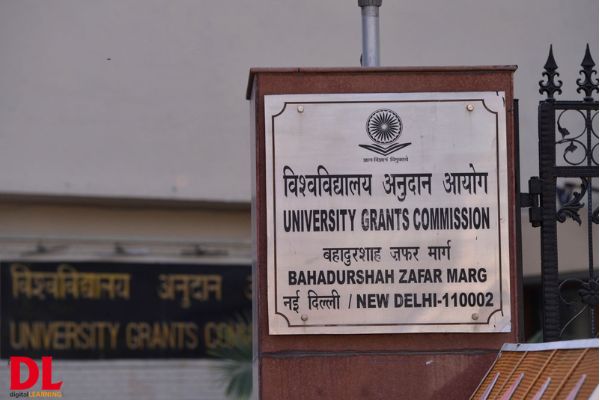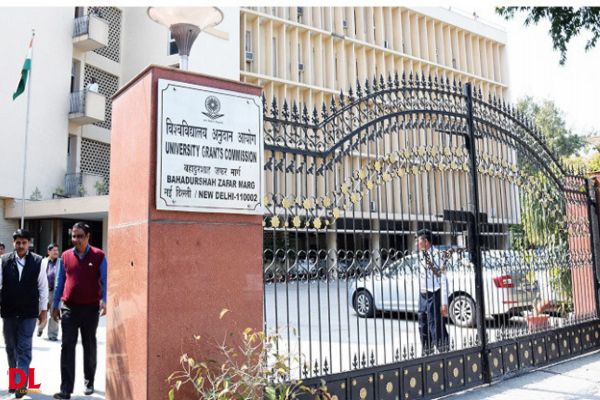In today’s globalised world, collaborative learning and the universalisation of school education have become increasingly important. The rapid advancements in technology, communication, and transportation have interconnected societies and created a need for a more inclusive and globally-minded approach to education. Collaborative learning, which emphasises cooperation, teamwork, and shared knowledge, has emerged as a powerful tool for fostering cross-cultural understanding, promoting diversity, and preparing students for a globalised environment. The panel at 25th Elets World Education Summit explored the significance of collaborative learning in the universalisation of school education, highlighting its benefits, challenges, and the transformative impact it can have on students, educators, and communities worldwide. Edited excerpts:
Dr. Amrita Vohra, Director Principal, Elpro International School, Maharashtra, India said that “Throughout our upbringing, we have often heard the phrase “the world is your oyster,” and now, in a time where technology allows for exponential collaboration, this statement has become increasingly relevant. While globalization has been present since Columbus’s voyage, contemporary globalization between India and the Middle East began in 1991 when their governments opened up to each other’s markets. Since then, we have seen globalization in various industries, such as FMCG, beverages, IT, manufacturing, etc. However, one field that remained untouched until recently was education. Though there were sporadic efforts made to globalize education, it wasn’t until the pandemic-induced lockdown that we began to explore it further.”
She further said, “At Elpro International School in Pune, India, we launched an initiative called Pangea, which aimed to create a global village by bringing in schools from various parts of the world with different time zones. We had participation from countries such as Brazil, Sweden, Singapore, the Middle East, and the United Kingdom, and the students engaged in a wide range of activities. Through this initiative, we came to the realization that we were taking a step towards universalizing education.”
Hameed Ali Yahya K. M., Principal, Scholars Indian School, Ras Al-Khaimah, UAE, said that, “In today’s world, technology cannot be neglected, especially after the COVID-19 pandemic. It has supported education significantly through the introduction of online platforms. However, we must also consider that education is not merely about achieving financial success, but it should also focus on transforming the whole person into a better human being. Education should prepare individuals to live in the present world by instilling human values. Unfortunately, in our pursuit of technology, we tend to neglect the importance of developing humane qualities in students. With online classes, students are confined to a closed room and often think only about themselves or their smaller groups, which limits their experiences. To improve and develop better humane qualities, we need larger and diverse experiences that are currently lacking due to our concentration on smaller areas and groups.”
“It’s undeniable that the world is now divided into a pre-pandemic and post-pandemic era, and we have become accustomed to the term “pandemic” due to the global crisis we faced. However, collaboration has existed long before the pandemic, even without the use of technology. In fact, as early as the 1960s, people engaged in collaborative activities outside the classroom, despite the prevailing belief that individuals should work independently within it. Teachers assigned individual projects, problem-solving tasks, and assignments, but collaboration still took place outside the classroom,” he added further.
Swarnabha Saxena, Principal, Holy Rock School, West Bengal, India, said that, “Regarding technology, it is a small word with a vast meaning. How we react and perceive technology depends on our individual nature and focus. During the pandemic, technology played a crucial role in education as it allowed teachers to reach out to their students from home. However, it is essential to understand how to benefit from technology without compromising moral values and ethics. Collaborative Learning is a powerful tool that aids in the teaching and learning process, making it easier and more effective. This approach bridges the gap between what a learner can and cannot accomplish, and helps them understand and analyze their skills and abilities. As teachers, it is our responsibility to guide students on how to make the best use of technology in education.”
Daisy Paul, Principal, Ryan International School, Sharjah, stated that, “Technology has been instrumental in facilitating collaboration among students from different countries, and we have been implementing this in our schools for some time now through our initiative called “Classroom Beyond Boundaries” or “School Beyond Boundaries.” We have integrated technology into the classroom, and before the COVID-19 pandemic, we used to take students to different countries to interact with children from diverse cultures and understand their ways of life. This exposure helps Indian students gain a better understanding of life, which aligns with our belief that students should be prepared for life and not just exams. Collaboration and technological skills are essential in preparing students for life, which is why we emphasize them through our “Beyond Classrooms” programs. We usually take our students to various countries, such as London for the Thames Valley Summer School program, Estonia for the International Children’s Film Festival, and International Children’s Performing Arts.”
She further added, “Technology has facilitated a crucial role in connecting students from various countries in what we refer to as a classroom or school beyond boundaries. In the past, students were taken to different countries to interact with children of diverse cultures and learn about their ways of living. However, with the emergence of COVID-19, technology made it easier to collaborate virtually. An example of this was when our school worked on sustainable development goals (SDGs) with students from other schools in different countries. They used Zoom and other technological aids to share ideas and exchange thoughts on how each of their schools was tackling the problem. They were also given a problem to solve, and they sat together on different occasions to come up with a solution. Even though we were all indoors due to COVID-19, technology allowed children to work on real-life issues and share their ideas, which was an incredible experience. However, now that the pandemic is under control, we still continue to exchange students and teachers with other schools to prepare them for life, where they can learn from each other’s diverse cultures and ways of teaching.”
Zainab Asif, Head of Department American International School, Dubai UAE, stated that, “Technology has played a significant role beyond communication and connecting people globally, particularly in the education sector where it has connected communities and brought them into classrooms. Even as we transitioned from fully online to full face-to-face learning, it is crucial to continue using technology to enhance daily learning. For example, our school incorporated sessions from a renowned Montessori teacher who conducts master classes globally, allowing students from 70 countries to come together and share their experiences. This collaboration not only provides an opportunity for students to connect with others outside their community but also promotes self-awareness and empathy towards diversity and culture.”
She added, “Unlike before, where learning was confined to passive classroom settings, taking learning beyond the classroom has positively impacted studentsThe utilization of technology in education goes beyond just communication and connecting people globally. It plays a crucial role in bringing communities into the classroom and connecting students to real-life problems and challenges. Through these connections, students can develop valuable skills and acquire knowledge needed in the world outside the curriculum.”
She further said that, “It is important to transform learning from just the content in textbooks to exposure on different platforms, including technology. By incorporating technology as a vital tool in the learning process, students can explore the unknown world and learn how to maximize its resources. With the world transitioning towards more AI-generative programs, it is essential for students to learn how to utilize these resources in a positive and effective manner. The controversy around banning AI programs like ChatGPT should not hinder students from using them. Instead, we should focus on showing students the positive side of technology and how it can benefit their education and future endeavors as lifelong learners.”



























